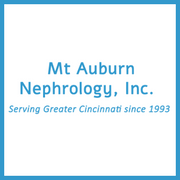
Kidney disease is one of the most common health problems American adults face, with up to 14% of the population suffering some loss of function. In the early stages, the effects of kidney disease can be managed, but those with acute renal failure may require a transplant or undergo dialysis for the rest of their lives. If your doctor recommends a kidney transplant, understanding the process will help you make the right choice for your health.
Understanding Kidney Transplants
Why Transplants Are Necessary
High blood pressure, obesity, and diabetes all contribute to chronic kidney disease, which progressively damages these vital organs. Stage 5 of kidney disease results in acute renal failure, which leaves your body unable to filter waste and manage levels of sodium and potassium. This damage is irreversible, so a kidney transplant may be the only way to regain normal function.
How Transplants Work
 A kidney transplant can be relatively straightforward, and normally takes approximately four hours. During the procedure, your existing kidneys usually won’t be removed unless they present some threat to your health. Instead, the doctor will likely place the donor kidney inside the abdomen, where it can be easily attached to the bladder and vital blood vessels.
A kidney transplant can be relatively straightforward, and normally takes approximately four hours. During the procedure, your existing kidneys usually won’t be removed unless they present some threat to your health. Instead, the doctor will likely place the donor kidney inside the abdomen, where it can be easily attached to the bladder and vital blood vessels.
What to Expect After a Kidney Transplant
A kidney transplant is a major surgery, but most patients can get out of bed the next day and may be able to return home within one week. You may be sore for several weeks, but most patients can return to their normal activities relatively quickly.
The body’s immune system will automatically treat any foreign material as a threat, so you will likely have to take immunosuppressant medication to avoid rejection of your new kidney. In the months after your surgery, your doctors will also want to monitor your condition, with followups and blood tests regularly.
As one of the Cincinnati area’s most trusted nephrology clinics, Mt Auburn Nephrology offers effective treatment for a wide range of conditions, from kidney stones to acute renal failure. Their experienced team is committed to giving every patient the compassionate treatment they deserve and makes every effort to ensure the best outcome possible. To learn about treatment options and schedule an appointment, visit their website now or call (513) 841-0222.
About the Business
Have a question? Ask the experts!
Send your question

